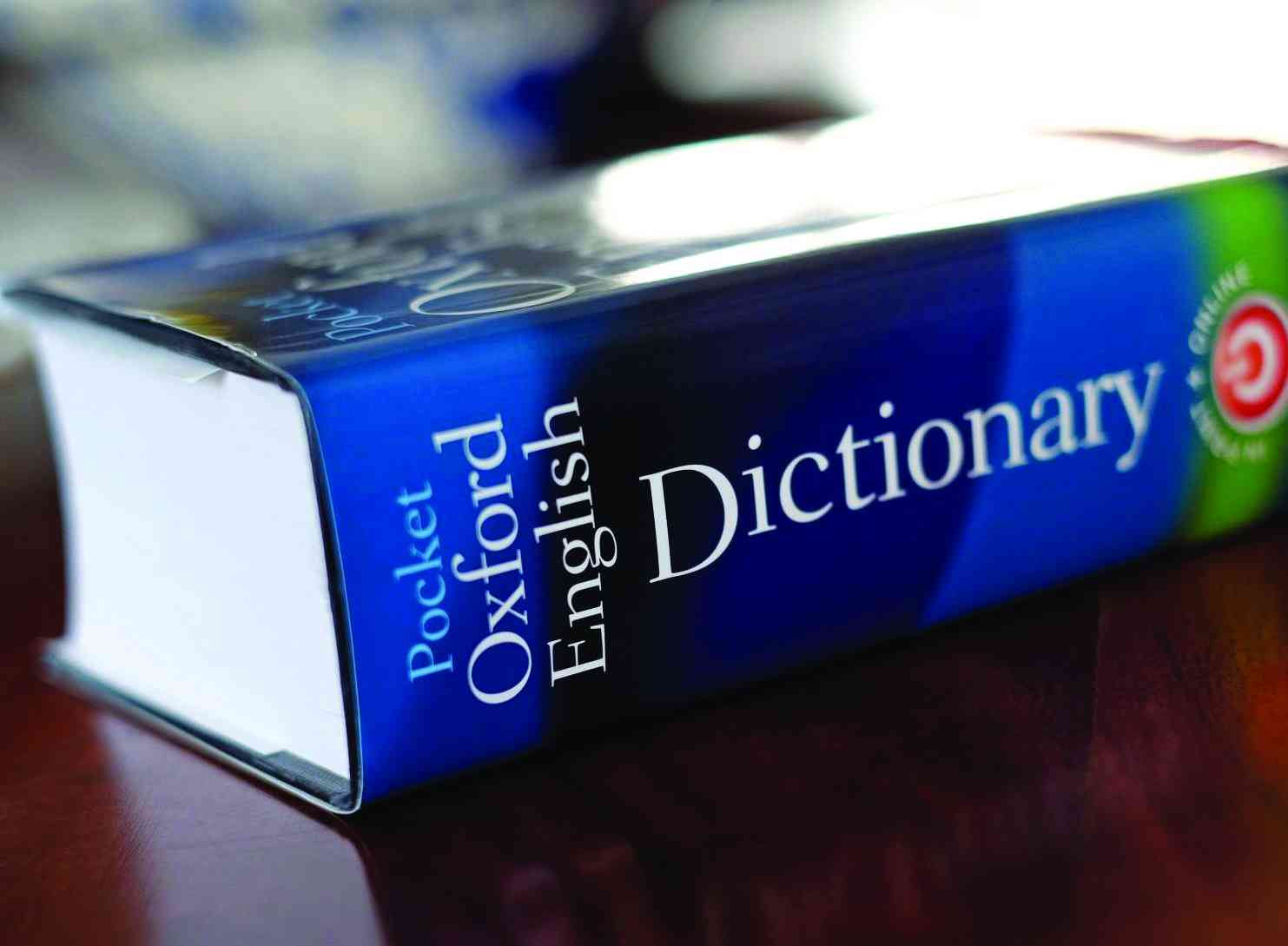
THE Oxford English Dictionary held significant importance in my life, and lives of many other Zimbabweans.
Dictionaries are a valuable and effective tool in teaching and learning the English language. They enhance in-depth vocabulary knowledge and quality education.
In Zimbabwe, where English is widely spoken and taught, owning the Oxford English Dictionary demonstrated a commitment to language proficiency and cultural connection. It played a crucial role in fostering a love for learning, enhancing communication skills, and opening doors to opportunities in education and professional endeavours.
The Oxford English Dictionary, a revered book that has served as the definitive authority on the English language for centuries, is facing profound changes. On February 1, 1884, editors published the first volume of what would become the Oxford English Dictionary.
The Oxford University Press has announced that the long-awaited third edition may never be printed. Instead, it will be exclusively available in electronic form due to the internet's impact on printed dictionaries.
While the online version of the dictionary attracts significant traffic, with two million monthly visitors, the print edition published in 1989 has seen limited sales, with only 30 000 sets sold to date.
The advent of the internet has revolutionised the way we access and consume information, and dictionaries have not been spared from this transformation. The online version of the Oxford English Dictionary, available to subscribers for an annual fee, has become a popular alternative to its printed version.
With its convenience, accessibility, and searchability, the digital platform has become an invaluable resource for writers, students, language enthusiasts and ordinary people.
- Death of the dictionary, tech taking over
Keep Reading
The shift towards online dictionaries brings with it several advantages. The digital format allows for continuous updates and revisions, ensuring that users have access to the most up-to-date information.
In contrast, printed dictionaries can quickly become outdated as language evolves. With the online version, new words and their meanings can be added promptly, reflecting the dynamic nature of language.
The cost-effectiveness of online dictionaries is a significant advantage. With a subscription model, users gain access to a vast repository of words, meanings, and historical usage at a fraction of the cost of purchasing a printed edition. This accessibility democratises knowledge, making it more affordable and available to a wider audience.
The searchability and cross-referencing capabilities of online dictionaries enhance the user experience.
Users can quickly search for specific words or phrases, making research and language exploration more efficient. Furthermore, the ability to navigate seamlessly between related entries and explore usage examples facilitates a deeper understanding of the language.
The decline in sales of the Oxford English Dictionary, a 20-volume set priced at US$1 165, highlights a broader trend in society.
The internet's ubiquity and the proliferation of digital tools have led to a decline in the usage and demand for printed dictionaries. Traditional reference books, once a staple on bookshelves, are being replaced by their digital products.
There are several reasons for this decline. Firstly, the convenience and portability of digital devices make accessing online dictionaries effortless.
With smartphones, tablets, and laptops readily available, users can access a wealth of information with a few taps or clicks.
The ability to carry an entire library of knowledge in one's pocket diminishes the need for physical, space-consuming reference books.
Secondly, the speed of digital search engines allows for instant gratification.
Users can simply type a word or phrase into a search bar, and within seconds, they have access to a multitude of definitions, synonyms, and usage examples from various sources. The immediacy and breadth of information available online surpass what a printed dictionary can provide.
Furthermore, the internet offers a diverse range of language resources beyond traditional dictionaries.
Online platforms, such as Wiktionary, Urban Dictionary, and specialised language forums provide alternative sources of information and foster collaborative language exploration.
While the advantages of online dictionaries are undeniable, the demise of the printed Oxford English Dictionary carries a sense of loss and nostalgia.
For generations, the physical presence of a dictionary on bookshelves symbolised knowledge, authority, and intellectual curiosity. Flipping through pages, stumbling upon new words, and tracing their etymology was an enriching experience.
The weight, texture, and history encapsulated in those bound volumes held a charm that cannot be replicated in the digital realm.
The physicality of the books served as a testament to their expertise, reflecting years of
To A14
research, collaboration, and linguistic exploration. The loss of the printed Oxford English Dictionary signifies the passing of an era in which the printed word held a tangible presence and evoked a sense of reverence.
As we close the chapter on the printed Oxford English Dictionary, it is crucial to recognise the value of preserving physical dictionaries as cultural artifacts.
These books represent a tangible connection to our linguistic heritage, showcasing the evolution of language over time. They offer insights into the historical context and provide a glimpse into the intellectual pursuits and linguistic curiosities of previous generations.
Museums, libraries, and collectors play a vital role in preserving the legacy of printed dictionaries. Efforts should be made to ensure that these physical dictionaries are not consigned to oblivion but instead are recognised as valuable artifacts worthy of conservation. Exhibitions, archival initiatives, and collaborations with digital platforms can help bridge the gap between the printed past and the digital future, ensuring that future generations can appreciate the historical significance of these reference books.
While we may mourn the loss of the printed Oxford English Dictionary, it is essential to acknowledge that technology is an unstoppable force.
The internet and digital platforms have transformed the way we communicate, learn, and access information. As society embraces these advancements, we must adapt and find ways to preserve the essence of traditional dictionaries in the digital realm.
Efforts should be made to ensure that online dictionaries maintain the depth, rigour, and authority associated with the printed versions. Collaboration between linguists, and technology experts can help create robust online platforms that provide accurate and reliable information.
Incorporating features that encourage exploration, such as etymology, historical usage examples, and linguistic variations, can help recreate the experience of navigating printed dictionaries.
Furthermore, education systems and institutions should adapt their approach to language learning in the digital age.
Teaching students how to critically evaluate and navigate online resources, including dictionaries, is crucial. Emphasising the importance of linguistic exploration and the understanding of language as a dynamic entity can help students develop a deeper appreciation for both digital and printed references.
The dearth of the dictionary, as symbolised by the demise of the printed Oxford English Dictionary, marks a significant shift in the way we engage with language.
The rise of online dictionaries, with their convenience and accessibility, has reshaped our relationship with words and knowledge.
While we may mourn the loss of the physical presence of dictionaries, we must embrace the countless advantages offered by their digital formats.
However, it is equally important to recognise the cultural and historical significance of printed dictionaries.
Efforts should be made to preserve them as valuable artifacts and reminders of our linguistic heritage. By adapting to the digital future and finding ways to bridge the gap between the printed past and the digital present, we can ensure that the legacy of traditional dictionaries endures.
Ultimately, the evolution of dictionaries reflects the progress of human knowledge and technology. As we bid farewell to the printed Oxford English Dictionary, let us approach the digital era with an open mind, appreciating the opportunities it brings, while cherishing the memories and experiences associated with the classic reference books of the past.
- Mutisi is the CEO of Hansole Investments (Pvt) Ltd. He is the current chairperson of Zimbabwe Information & Communication Technology, a division of Zimbabwe Institution of Engineers.











